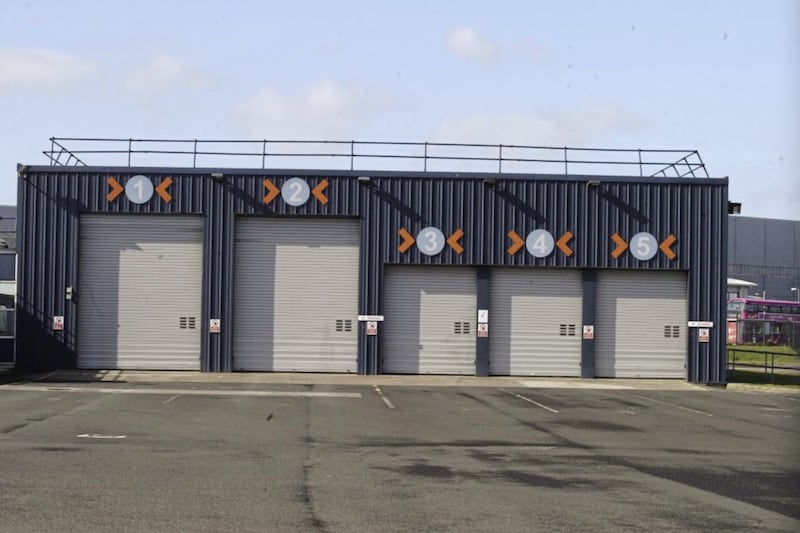IN a previous column, I outlined the importance of developing Northern Ireland’s infrastructure as part of a widely-recognised recipe for raising economic growth and living standards.
Of course other key ingredients to that growth plan include the quality of the labour force, building external trade levels, developing the knowledge economy, attracting foreign investors and building competitiveness through R&D and innovation. Infrastructure, however, is the bedrock of economic development and without infrastructure investment, all those other elements required for economic success cannot fall into place.
Strategic connections in this small country are essential for helping us access markets, attract tourism and allow businesses in our main cities and across Northern Ireland to thrive. In particular, investment in cities is an established way to drive up a country’s economic growth and productivity.
Jonathan Woetzelf, director at McKinsey, recently gave a great talk which can be accessed on the McKinsey website where he talks about cities being the productivity engines of countries. He explains that cities “create productivity by enhancing the number and frequency of transactions. Higher productivity density equals higher frequency of interactions, and the more interactions there are, the more you can figure out what you’re good at and what you’re not. Then we become better at the good.”
However, Woetzelf notes that simply being a city is not enough. For a city to thrive it must be open to absorbing immigration. McKinsey estimates that around two thirds of economic growth is dependent on population flows, so the cities that are incapable of attracting migrant workers simply shrink.
Population growth will not happen unless there is sufficient investment in housing, transport, energy, grade A office space, etc. So growing Northern Ireland’s overall population, attracting migrant workers and (crucially for Northern Ireland) being able to retain a much higher proportion of our school leavers, will require infrastructure investment.
Northern Ireland has experienced decades of under investment in our infrastructure and this needs to be reversed. Our investment today must reflect a vision of where we see ourselves in 20, 30 or 40 years from now.
After this Thursday's elections, Northern Ireland will get a new Department for Infrastructure. Nobody should underestimate the importance of this department because it has the potential to push our economic growth path on to an upward or downward trajectory. The success or failure of this new Department of Infrastructure will ultimately depend upon a number of things:
1 The new minister’s ability to create a vision of what is possible for Northern Ireland when it comes to economic growth and infrastructure.
2 The minister’s ability to commit to a prioritised and precise list of Northern Ireland’s infrastructure needs.
3 Success will also depend upon the minister’s openness to alternative financing models to pay for the proposed infrastructure – quite simply there is precious little money in the public purse to deliver even our basic infrastructure needs never mind our aspirations to have 21st century infrastructure. Without adopting new funding models for infrastructure investment this region will not progress.
4 The minister’s ability to win public support and manage expectations for mega projects.
5 The department’s ability to take a long-term view with regard to its overall strategy. A long-term focus is needed which takes into consideration population projections, changing lifestyles. technology etc. Capital budget allocations for local infrastructure projects must be flexible and cannot be limited to short term time-frames.
6 The minister and (his or her) department must be good at collaborating with key stakeholders – the private sector, regional planners, private funders, and other government departments.
7 This new department must also design and adhere to an effective procurement strategy to ensure quality and timely delivery of local infrastructure projects.
8 The department will need to be staffed with the appropriate skills and expertise in areas such as planning, engineering, project management and of course risk management.
The opportunities for this new department are huge. This is a time when borrowing costs are cheap. Technology is delivering better and smarter ways of working and this country is small. Collaboration with stakeholders, partners and experienced personnel should make it easy to realise our ambitions.
The new Minister must not be allowed to sit on his or her laurels - biding their time by simply carving up a share of the local block grant to a limited number of infrastructure projects. We must demand much more from this new department. The Northern Ireland public should have high expectations for the quality and delivery of local infrastructure. They must open their minds too, especially around issues such as new funding methods and how ambitious we should be.
In reality, all around the world, there are perfectly good examples of public-private partnerships, delivering high quality infrastructure that is delivered on time.
The Northern Ireland public must also be prepared to make a contribution towards our investment in public infrastructure, whether it be through toll-roads or water charges – that is the reality everywhere else. There is much to learn from international best practice – let’s hope the public and the new minister are up for the challenge.
:: Angela McGowan is chief economist at Danske Bank in Northern Ireland.
:: Next week: Richard Ramsey








